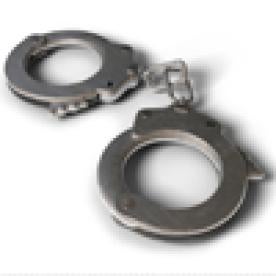For the first time in nearly two decades, the United States Supreme Court has directly addressed the scope of insider trading liability under the federal securities laws. The Court in Salman v. United States considered whether a gift of confidential information to a friend or relative constitutes a personal benefit giving rise to insider trading liability. The Court, relying on its 1984 decision in Dirks v. SEC, held that a tipper’s gift of confidential, inside information to a trading relative constituted a sufficient personal benefit to support an insider trading conviction. Moreover, the Supreme Court rejected any interpretation of the Second Circuit’s decision in United States v. Newman that would require proof that an insider received money, property or something of tangible value in exchange for divulging confidential information, in order to establish criminal or civil liability.
Insider Trading Law under Dirks
A person who knowingly receives material, nonpublic information from a corporate insider and trades on it does not, without more, commit securities fraud. In Dirks v. SEC, the Supreme Court explained when such a person (a “tippee”) is under a duty to refrain from trading on the basis of receipt of material non-public information from a corporate insider (a “tipper”). The Court held that under the “classical theory” of insider trading, a duty arises only when the information has been improperly obtained -- when the tipper has provided information in breach of a fiduciary duty to shareholders. Under Dirks, the test for determining whether such a breach has occurred is “whether the insider personally will benefit, directly or indirectly, from his disclosure.” Absent a personal gain, the insider will not have breached his or her duty and thus does not have a duty to refrain from trading. This personal benefit test under Dirks requires courts to focus on “objective criteria,” such as whether the insider obtains “a pecuniary gain or a reputational benefit that will translate into future earnings.”
The Second Circuit’s Decision in Newman
In its 2014 decision United States v. Newman, the Second Circuit Court of Appeals, addressing insider trading claims against portfolio managers at two hedge funds that obtained inside information indirectly from insiders at two public companies, held that the evidence presented at trial was insufficient to support the government’s theory that the tippers received any personal benefit, alleged by the government to be career advice and friendship, in exchange for providing inside information. For evidence of a personal benefit to be sufficient, the Second Circuit wrote, there must be “proof of a meaningfully close personal relationship that generates an exchange that is objective, consequential, and represents at least a potential gain of a pecuniary or similarly valuable nature.”
The Ninth Circuit’s Decision in Salman
Bassam Salman was indicated for federal securities fraud crimes for trading on inside information he received from a friend and relative by marriage who had, in turn, received the information from his brother, a former investment banker. Relying on Newman, Salman argued before the Ninth Circuit Court of Appeals that the jury instructions given in his criminal case had been erroneous and that the government had presented no evidence of any “tangible benefit in exchange for the inside information.” The Ninth Circuit rejected Salman’s argument, observing that “the Government presented direct evidence that the disclosure was intended as a gift of market-sensitive information,” and holding that this evidence permitted the jury to infer that the tipper had received a personal benefit for disclosing the information. The Ninth Circuit disagreed with Newman to the extent it could be read to require a tangible benefit.
Supreme Court’s Decision
On December 6, 2016, the Supreme Court unanimously ruled[1] that a tipper acts for his or her personal benefit in disclosing information, and thus breaches his or her duty for purposes of insider-trading liability, by gifting inside information to a trading relative or friend with the expectation that the relative or friend would trade on that information. The Court found that the issues before the Court rested squarely in the Court’s Dirks’ analysis where the Court stated that “the elements of fiduciary duty and exploitation of nonpublic information also exist when an insider makes a gift of confidential information to a trading relative or friend.” Further, the Court noted that a gift of insider information to a trading relative or friend may be viewed by a jury as the equivalent of a cash gift. However, the Court declined to adopt the Government’s position that a showing of any disclosure of confidential information by an insider for any non-corporate purpose is sufficient to prove a personal benefit to the tipper. The Court was clear that the disclosure of confidential information without personal benefit to the disclosing insider is not enough to establish liability.
Of note, the Supreme Court rejected any interpretation of the Second Circuit’s decision in Newman that would require proof that an insider received money, property, or something of tangible value in exchange for divulging confidential information, in order to establish criminal or civil liability for insider-trading. However, the Court noted that it was not addressing the aspect of the Newman decision that required proof that a tippee know that the insider had received a personal benefit from the tip.
[1] https://www.supremecourt.gov/opinions/16pdf/15-628_m6ho.pdf





 i
i

